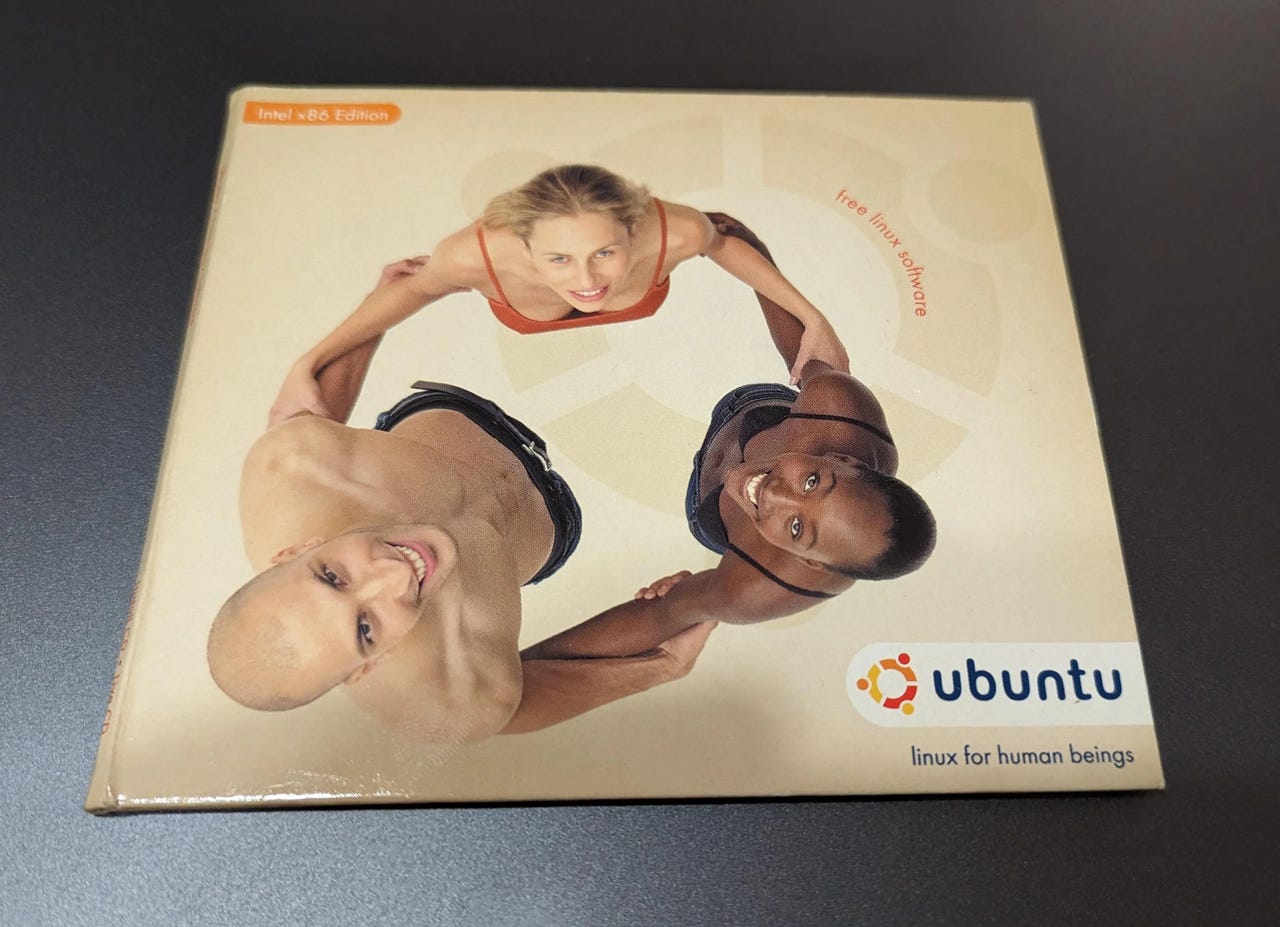
































You could either download the first version of Ubuntu Linux or get a CD of the release mailed to you for free.
2004 was already an eventful year for Linux. As I reported at the time, SCO was trying to drive Linux out of business. Red Hat was abandoning Linux end-user fans for enterprise customers by closing down Red Hat Linux 9 and launching the business-friendly Red Hat Enterprise Linux (RHEL). Oh, and South African tech millionaire and astronaut Mark Shuttleworth launched Canonical, Ubuntu Linux's parent company.
Little did I -- or anyone else -- suspect that Canonical would become one of the world's major Linux companies.
Also: The best Linux distros for beginners: Expert tested
Shuttleworth had made his millions from founding and then selling Thawte Consulting, a security and major certificate authority (CA) company. He was interested in more than making money. Shuttleworth had also been a Debian Linux developer. Using the proceeds from the Thawte sale, he founded Canonical Ltd. in the United Kingdom.
Canonical's purpose, from the beginning, was to support and share free software and open-source software. Indeed, the name of its flagship operating system, Ubuntu, comes from the Zulu phrase, "Umuntu ngumuntu ngabantu." Its modern meaning, outside of Linux's circles, comes from the late Archbishop Desmond Tutu. In his book,No Future Without Forgiveness , he said someone with Ubuntu is "open and available to others, affirming of others."
Sound familiar? When Shuttleworth announced the release of the first version of Ubuntu -- Ubuntu 4.10 Warty Warthog -- he wrote:
"Ubuntu" is an ancient African word for "humanity towards others", and we think it's a perfect name for an open source community project. In that spirit we invite you to join, to contribute and to share Ubuntu with your own community.
In short, as Ubuntu's original motto said: "Linux for Human Beings."
Then, as now, Ubuntu was based on Debian Linux. Unlike Debian, which never met a delivery deadline it couldn't miss, Ubuntu was set to be updated to the latest desktop, kernel, and infrastructure with a new release every six months. Canonical has kept to that cadence -- except for the Ubuntu 6.06 release -- for 20 years now.
From the get-go, Canonical's mission was audacious: To create an operating system that was as feature-rich, user-friendly, and accessible as its proprietary counterparts. Released in October 2004, Ubuntu Linux quickly became synonymous with ease of use, stability, and security, bridging the gap between the power of Linux and the usability demanded by end users.
Also: Ubuntu 24.04: Same as it ever was, but with 5 big improvements
The early years of Canonical were marked by rapid innovation and community building. The Ubuntu community, a vibrant and passionate group of developers and users, became the heart and soul of the project. Forums, wikis, and IRC channels buzzed with activity as people from all over the world came together to contribute code, report bugs, write documentation, and support each other.
Over the years, this community-centric approach has changed. While Ubuntu is still an end-user-friendly distribution -- it's the only major vendor Linux distribution that still strongly supports desktop Linux (to keep the lights on) -- Ubuntu is most used now as a cloud, server, and Internet of Things (IoT) operating system.
Canonical has also tried, with mixed success, to influence Linux's path. In 2011, for example, Canonical introduced Unity, a new Linux desktop, as its default desktop. The idea was to create a graphical interface that you could use not just for the Linux desktop but for smartphones and tablets as well.
For four years now, Unity has made Ubuntu simple enough for a child to use. Click on the app, and you're off and running.
I liked Unity a lot, but I was one of the few who did. By 2017. Canonical gave up on Unity and its related plans for Ubuntu-powered smartphones and tablets. While Ubuntu Unity still lives on -- open-source projects have nine lives -- it's now a sideline. Ubuntu renewed its commitment to the GNOME desktop.
I2016, on the other hand, saw the emergence of Ubuntu Snap, a containerized way to install software, which --along with its rival Red Hat's Flatpak -- is helping Linux gain some desktop popularity. Both make it much easier for software vendors to deliver programs to the Linux desktop while helping give users more application choices.
Also: 5 reasons why desktop Linux is finally growing in popularity
Canonical's influence extends beyond the desktop. Ubuntu Linux, for example, is the number one cloud operating system. Ubuntu started as a community desktop distribution, but it's become a major enterprise Linux power.
Looking ahead, I expect Canonical will eventually go public. Unusually for a tech company, Canonical doesn't have any financial need to issue an IPO. Shuttleworth has managed to self-finance the company. As Shuttleworth said in a 2022 interview, Canonical doesn't need money. Rather, the company is "trying to find the balance between preserving what I think people really love about Ubuntu and Canonical and also continuing to step up to the responsibilities that I think we now have in the global tech market."
Today, as Canonical turns 20, Ubuntu Linux powers millions of desktops, servers, and clouds. Canonical's journey is far from over. I expect its next 20 years will be as innovative and successful as its first two decades.
 Etiquetas calientes:
negocio
Software de empresa
Etiquetas calientes:
negocio
Software de empresa